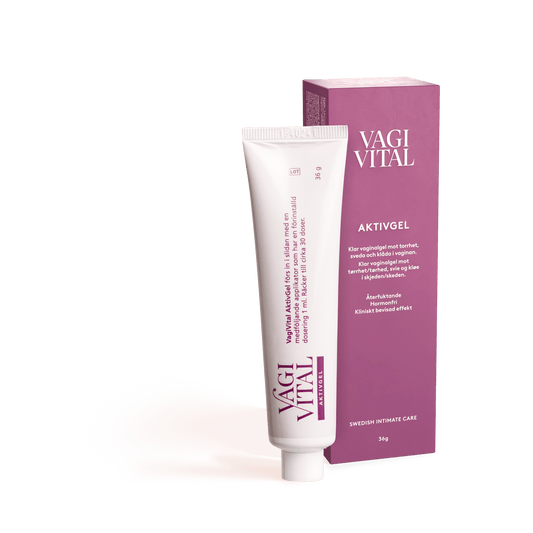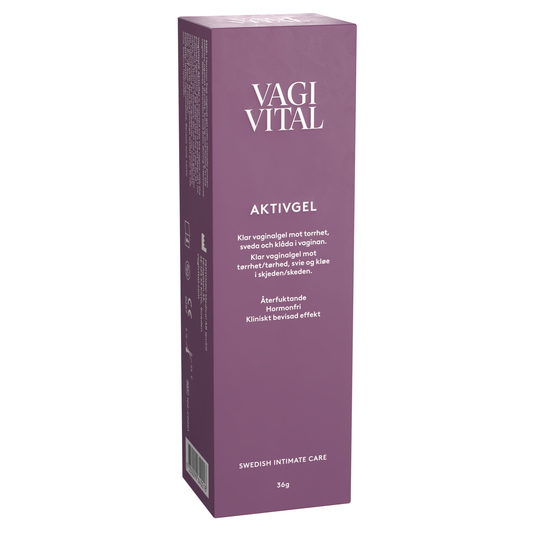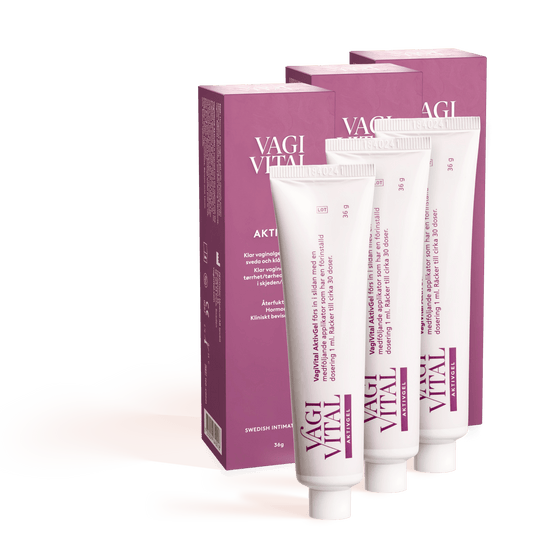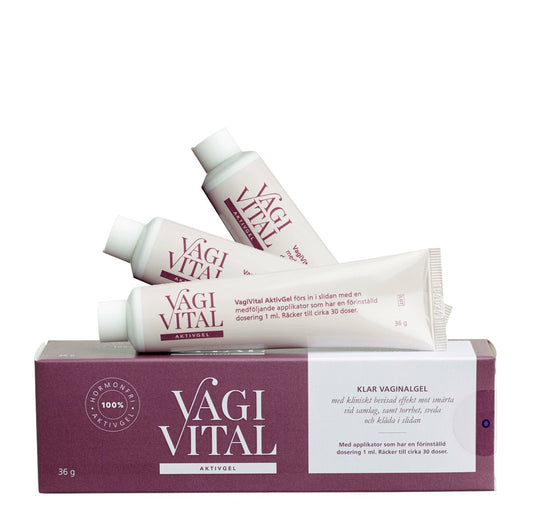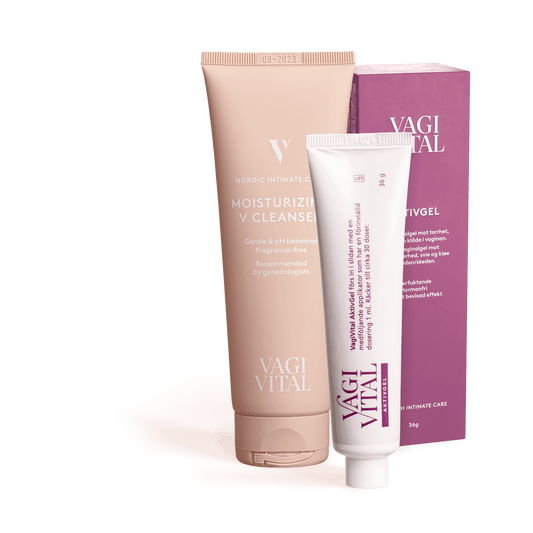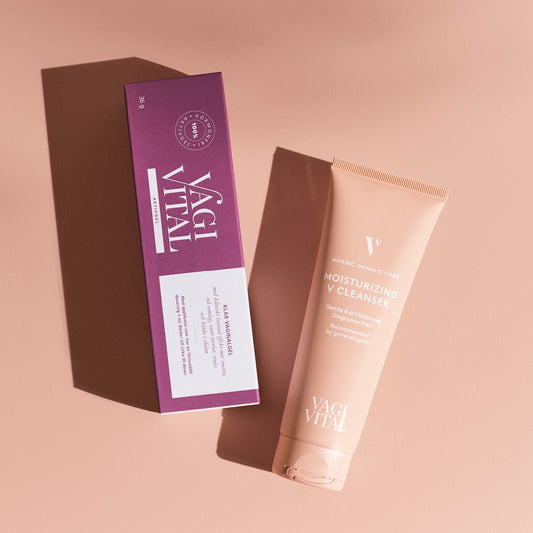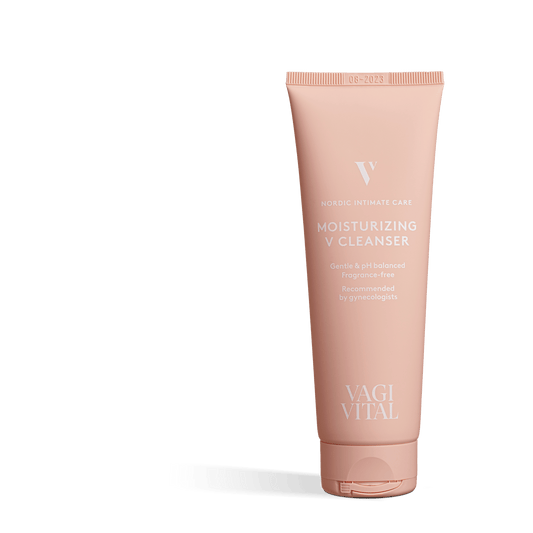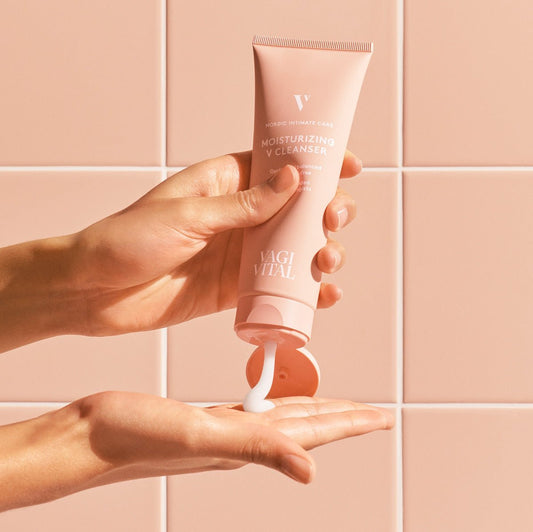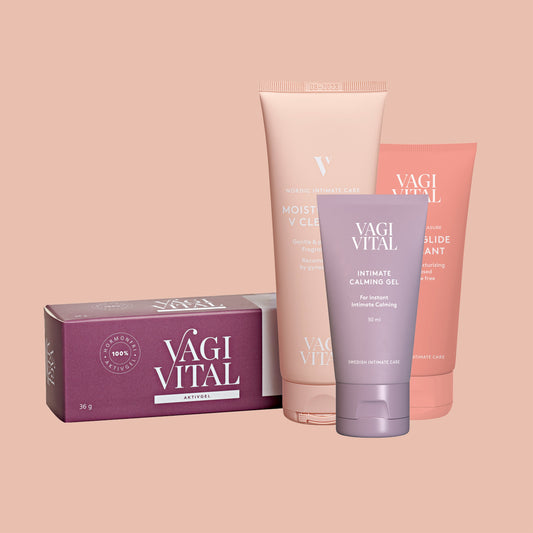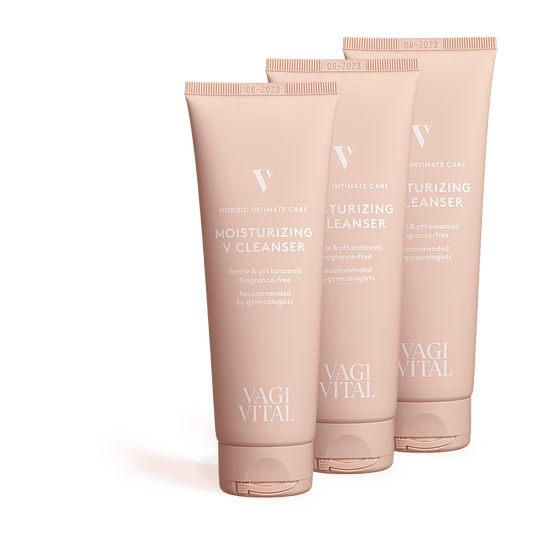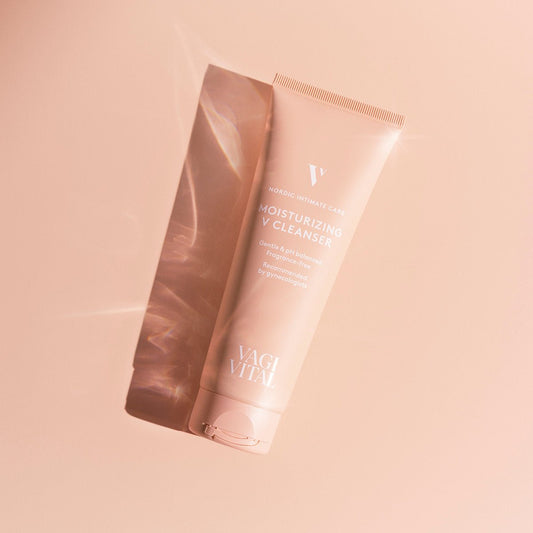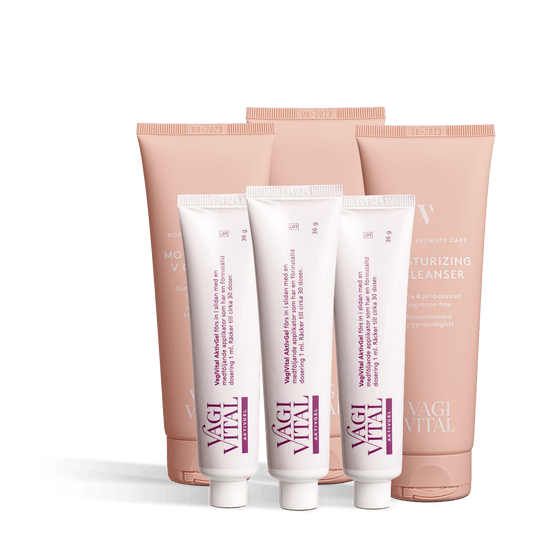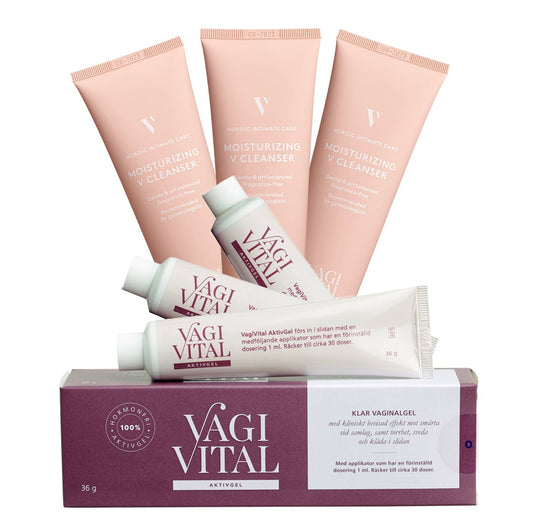Common Myths About Intimate Health – What’s True, Facts, and Some Tips
Taking care of your intimate area can feel both simple and complicated at the same time. There are many pieces of advice, products, and tips – but there are also a lot of misconceptions that circulate. Here, we address five common myths about intimate health, explain what is actually true, and share some tips to make everyday care easier.
🌸 Myth 1: “The intimate area should be completely odor-free”
Truth & Facts: Every woman has a unique and natural scent, which is part of the intimate area’s balance. A slightly acidic smell is completely normal and indicates that the vaginal microbiome is in balance. Odor and discharge naturally vary throughout the menstrual cycle, after sex, or during hormonal changes such as pregnancy, ovulation, or stress. This shows that the body responds to natural changes.
Other factors can also influence how the intimate area smells, including diet, sweat, underwear material, and activity levels. It’s important not to compare yourself to other women – every body is unique and has its own natural scent.
Tips: If you notice a clear change in odor, such as a strong, fishy smell, or experience itching, irritation, or unusual discharge, it may indicate an infection, and you should contact a healthcare provider. For daily hygiene, mild cleansing with water or a fragrance-free, pH-balanced intimate wash is sufficient. This helps maintain the natural balance without disturbing the normal flora. Most importantly, get to know your own body and what is normal for you.
🌸 Myth 2: “Vaginal dryness causing irritation & itching only happens after menopause”
Truth & Facts: Vaginal dryness can affect women of all ages; it’s not something that only occurs after menopause. Hormonal changes, stress, certain medications (e.g., birth control pills or antidepressants), as well as phases of the menstrual cycle or breastfeeding periods, can affect the natural moisture balance of the intimate area. When the mucous membranes become drier, it can cause discomfort, itching, burning, and pain during intercourse. Lifestyle, sleep, and how well you take care of your intimate health also play a role.
Tips: If you experience dryness, try regularly adding moisture with a gentle, pH-balanced product that restores the natural moisture balance of the vagina and vulva. Stress management, adequate hydration, and good sleep can also help your intimate area regain its natural balance.
🌸 Myth 3: “Women should use special intimate products every day”
Truth & Facts: Do women really need a whole arsenal of products to feel clean and balanced? In fact, most people do just fine with mild cleansing and water. The intimate area is self-cleaning and designed to maintain its own balance. Problems can occur if products with strong fragrance, soap, or alcohol are used, as these can disrupt the delicate bacterial flora and cause imbalance. It’s not about using more – it’s about choosing the right products.
Tips: Look for products designed with the intimate area’s natural pH and bacterial flora in mind. pH-balanced, fragrance-free, and hormone-free products can support the area’s self-cleaning function, relieve dryness, irritation, and discomfort, and contribute to intimate well-being. Check the ingredients and choose products that work with your body, not against it.
🌸 Myth 4: “Lubricant is only for women with dryness”
Truth & Facts: Many people believe that lubricant is only needed for those who are “dry” or post-menopause – but this is a myth. Lubricant is primarily about enhancing comfort and pleasure. Regardless of age, hormone levels, or life situation, a good lubricant can make intimate moments more comfortable and enjoyable. It reduces friction, provides a smoother sensation, and protects the mucous membranes from irritation and tiny microscopic injuries that can occur during intercourse. It’s not about “needing” lubricant – it’s about enjoying more.
Tips: Choose a lubricant that is pH-balanced, fragrance-free, and gentle on the mucous membranes. Avoid products with glycerin or parabens, which can disrupt the bacterial flora. A water-based option, preferably designed for sensitive skin, works for most people.
🌸 Myth 5: “Urinating after sex prevents urinary tract infections”
Truth & Facts: Urinating after intercourse is a good and well-known tip, but it does not provide complete protection against urinary tract infections (UTIs). Emptying the bladder can help flush out bacteria that may have entered the urethra during sex, but infections are often caused by multiple factors that cannot be controlled. Hormones, bacterial flora, fluid balance, and immune function all play a role. For example, low estrogen levels can make mucous membranes drier and more susceptible to irritation and bacteria. Stress, poor sleep, or insufficient hydration can also affect the body’s natural defenses. Some women are more susceptible due to genetic factors or previous infections.
Tips: To prevent UTIs, maintain good hydration, avoid holding urine for too long, and support the natural bacterial flora – for example, by using gentle, pH-balanced intimate products. Avoid soaps, especially fragranced ones, and wear breathable cotton underwear. If you experience recurrent infections, it can be helpful to review hormonal balance and lifestyle factors with your healthcare provider.
Summary
Understanding how your intimate area works, recognizing your own signals, and knowing what is normal for you are fundamental for intimate health and overall well-being. Many myths can create misunderstandings and unnecessary worry – while small changes in daily routines, the right products, and knowledge can make a big difference.
Recommended products for you
- Choosing a selection results in a full page refresh.
- Opens in a new window.
